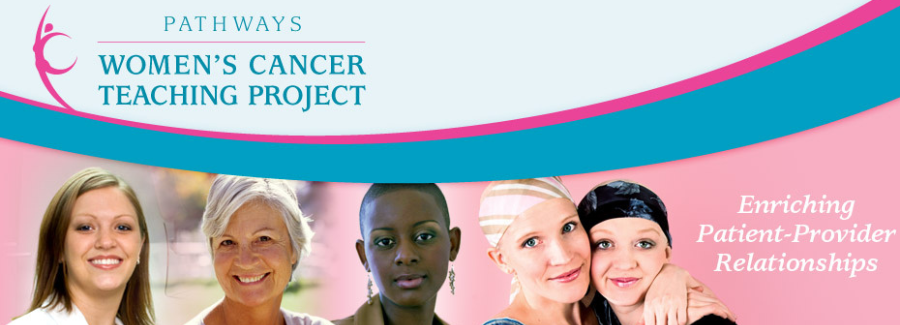
women who have survived breast and gynecological cancers and are trained as Patient Educators (PEs) to tell our personal health stories to the medical community and general public.
educational sessions in both panel and one-on-one interview formats delivered free-of-charge and focused on the impact of a cancer diagnosis, interaction with the healthcare system, and the reality of living with cancer.
residents, medical students, attending physicians, nurses, social workers, chaplains and other healthcare professionals.
The Pathways Women’s Cancer Teaching Project trains cancer survivors to provide educational programs for physicians, nurses, other hospital professionals and the community. These “Patient Educators” conduct teaching sessions in which they describe their personal experiences with cancer, focusing on the impact of receiving a cancer diagnosis; interactions with physicians and the healthcare system; and the reality of living with cancer.
Residents rarely get the opportunity to meet with patients in a non-clinical setting to simply ask questions and discuss issues without focusing on diagnostic assessments and treatment interventions. Rather than participating solely in diagnostic “role plays” with actors, healthcare professionals will learn about patients’ personal experiences through educational dialogue in a less formal setting.
Nearly 2,000 healthcare professionals have participated since 2003. The Pathways Women’s Cancer Teaching Project has received national recognition and is available as a resource for the development of similar programs throughout the United States.
The Teaching Project also allows training hospitals to fulfill requirements for graduate medical education. The Accreditation Council for Graduate Medical Education (ACGME) core competencies addressed by the Teaching Project are defined as follows:
- Interpersonal and Communication Skills “Communicate effectively with patients, families and the public across a broad range of socioeconomic and cultural backgrounds.”
- Professionalism “Demonstrate compassion, integrity, and respect; responsiveness to patient needs that supersedes self interest; respect for patient privacy and autonomy; and sensitivity and responsiveness to a diverse patient population, including diversity in gender, age, culture, race, religion, disabilities and sexual orientation.”
Call us for more information: (908) 273-4242 x154
FROM STUDENTS
“There is a patient underneath the disease waiting to be talked to, sometimes scared but all the time strong, sometimes crying but all the time hopeful.” – 2nd year resident Overlook Hospital, Internal Medicine
FROM PHYSICIANS
“The residents universally found the panel discussions with the breast cancer survivors to be not only poignant and informative, but helped them to better understand the patient’s experience with their disease and their journey through the healthcare system… Residents found the one-on-one interactions helpful as well, to separate the patient as a person from her identity as a person with cancer, and to learn how to break the ice with a potentially uncomfortable conversation… I know our residents will remember this workshop and somewhere down the line it will have made a positive impact on some interaction with a patient.” – David Kuo, MD, FACP Clinical Assistant Professor, Mt. Sinai School of Medicine Program Director, Atlantic Health Transitional Year Residency Associate Program Director, Internal Medicine Residency, Morristown Memorial Hospital
FROM PATIENT EDUCATORS
“Becoming a patient educator has been an important part of my journey in healing from breast cancer. It is so empowering to be a part of a group that helps enlighten medical students and professionals about the cancer experience. I know that patient care is changing because of this project.” – Lesley
“I believe that through our stories of diagnosis and treatment we’re also increasing awareness about the signs and symptoms of ovarian cancer which is so difficult to diagnose in its early stages. It’s thrilling to learn from our participants that they’ve heard us and put ovarian cancer on their radar screen when thinking about diagnoses. We are truly making a difference.” – Peggy
